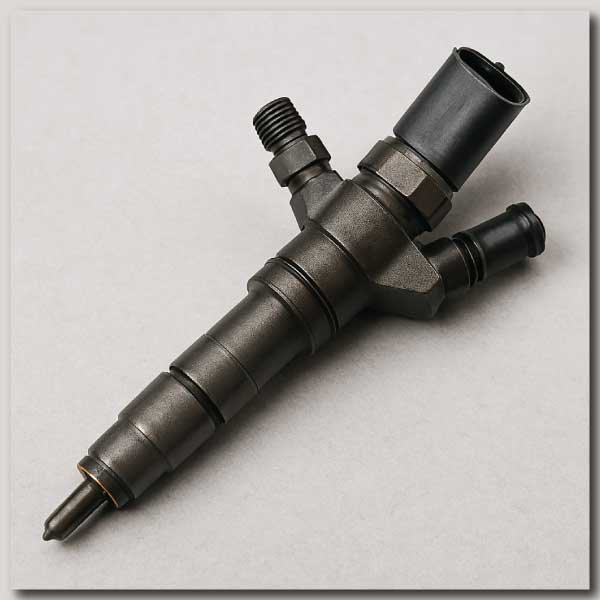Fuel injectors are an essential component of your vehicle’s engine. They are responsible for delivering the precise amount of fuel into the combustion chamber, ensuring your engine runs smoothly and efficiently. When fuel injectors start malfunctioning, it can affect performance, fuel efficiency, and even damage the engine over time. Identifying faulty fuel injectors early is crucial to avoid costly repairs. In this post, we’ll explore 10 common symptoms of faulty fuel injectors, helping you understand when it’s time to get them checked or replaced.
1. Poor Fuel Efficiency
One of the first signs of a faulty fuel injector is a sudden drop in fuel efficiency. If an injector is leaking or clogged, the engine may not receive the proper air-to-fuel ratio. This causes the engine to burn more fuel than necessary, leading to frequent trips to the gas station. If you notice that your car’s miles per gallon (MPG) have decreased significantly without changing your driving habits, it could be a clear indicator of fuel injector problems.
2. Engine Misfires
A clogged or malfunctioning fuel injector can cause engine misfires. Misfires occur when the fuel supply to the combustion chamber is inconsistent, resulting in uneven combustion. You may notice the car shaking or jerking during acceleration, especially when driving at low speeds. Persistent engine misfires can damage other engine components like the catalytic converter, so addressing injector issues promptly is critical.
3. Rough Idling
If your vehicle feels shaky or rough when idling, it could be due to a faulty fuel injector. When injectors do not deliver fuel properly, the engine may run unevenly, causing vibrations while the car is stationary. Rough idling can also be accompanied by unusual noises or fluctuating RPMs. Ignoring this symptom can lead to further engine complications, including stalling.
4. Hard Starting
Difficulty starting your engine is another common symptom of fuel injector problems. Faulty injectors may fail to supply enough fuel to ignite the engine, making it hard to start, especially in cold weather. You might find yourself turning the key multiple times before the engine finally fires up. Over time, repeated hard starts can put extra strain on the battery and starter motor.
5. Strong Fuel Odor
A leaking fuel injector can produce a noticeable gasoline smell around your vehicle. Fuel may escape into the engine bay or exhaust, creating a strong odor. Not only is this a performance issue, but it’s also a safety concern. Gasoline leaks are highly flammable, so any unusual fuel smell should be addressed immediately by a professional mechanic.
6. Engine Knocking or Pinging
Faulty injectors can cause engine knocking or pinging sounds. When fuel delivery is uneven or incorrect, the air-fuel mixture may ignite prematurely, causing knocking noises. Prolonged engine knocking can damage pistons, cylinders, and valves. If you hear these unusual sounds, it’s essential to check the fuel injectors along with other engine components.
7. Increased Exhaust Emissions
A malfunctioning fuel injector can affect the engine’s combustion efficiency, resulting in higher exhaust emissions. You might notice black smoke, strong fumes, or a check engine light indicating emission issues. Excessive emissions can lead to failed emission tests, environmental damage, and decreased engine performance. Cleaning or replacing faulty fuel injectors can restore proper fuel combustion and reduce emissions.
8. Engine Stalling
If your vehicle frequently stalls, especially when idling or coming to a stop, faulty fuel injectors could be the cause. Inconsistent fuel supply prevents the engine from maintaining smooth operation. Engine stalling is not only inconvenient but can also be dangerous, especially in traffic. Addressing injector issues quickly can prevent unexpected stalling incidents.
9. Poor Acceleration
A car with faulty fuel injectors may struggle to accelerate properly. When the injectors fail to provide the correct amount of fuel, the engine cannot generate adequate power. You may notice delayed response when pressing the accelerator or reduced overall performance. Poor acceleration affects driving safety and can indicate deeper engine problems if left unresolved.
10. Check Engine Light
Modern vehicles are equipped with sensors that detect fuel system issues. A faulty fuel injector may trigger the check engine light on your dashboard. While the light itself does not pinpoint the exact problem, it is a clear warning that something is wrong with the engine. Using an OBD-II scanner can help identify if the fuel injectors are causing the issue.
Conclusion
Fuel injectors play a crucial role in your engine’s performance and efficiency. Recognizing the 10 symptoms of faulty fuel injectors—including poor fuel efficiency, engine misfires, rough idling, hard starting, fuel odor, engine knocking, increased emissions, stalling, poor acceleration, and the check engine light—can help prevent costly repairs and maintain vehicle safety.
If you notice any of these signs, it’s important to have your fuel injectors inspected and cleaned or replaced by a certified mechanic. Regular maintenance and timely attention to fuel injector issues can extend the life of your engine and ensure smooth, reliable performance on the road.
Also Read:

